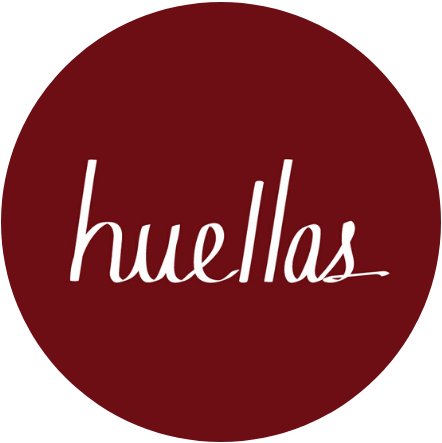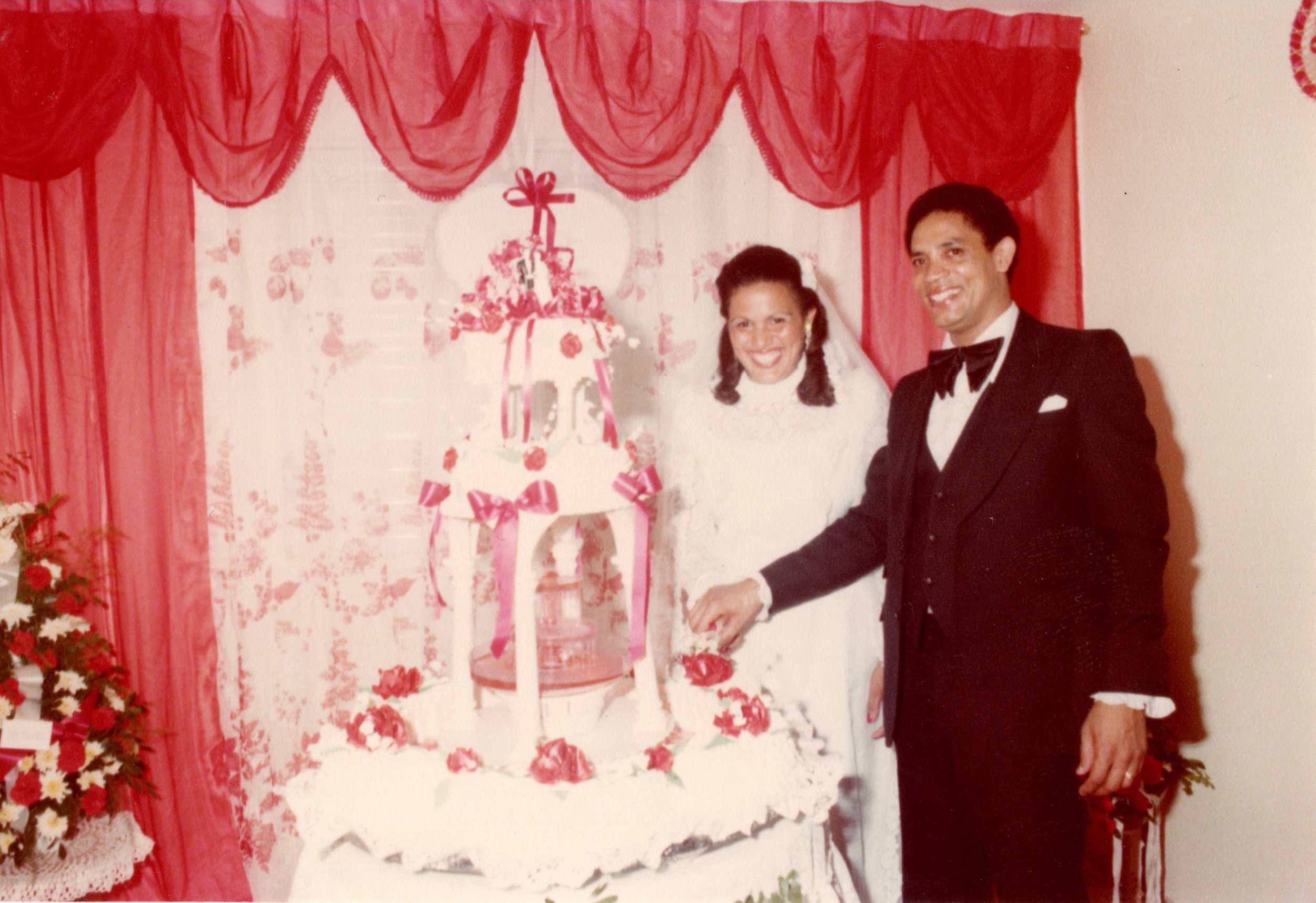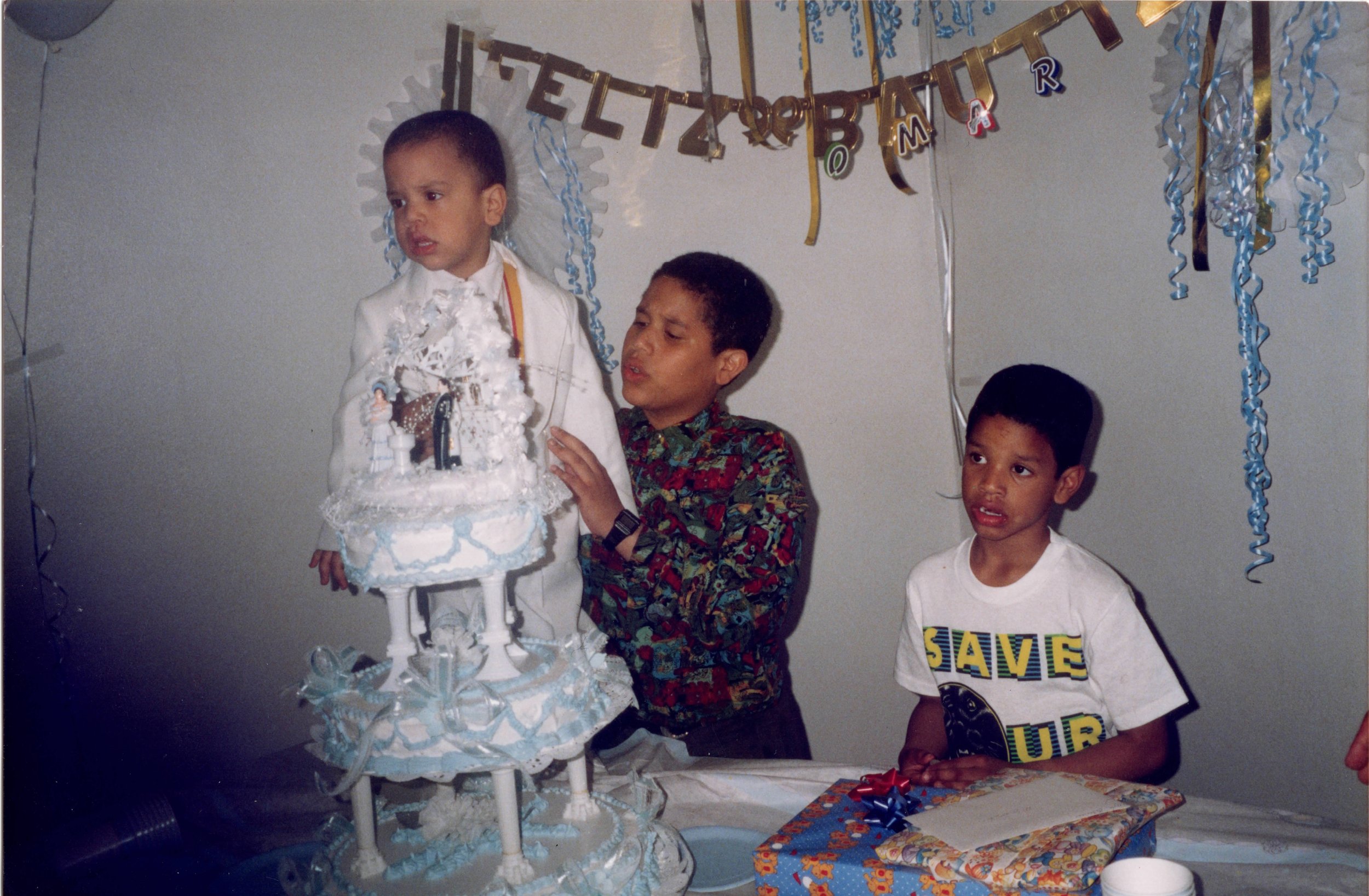This Is Where We Live Now
Leer en español.
Growing up one of the things that papi focused the most energy on, was the importance of getting an education. Money may come and go but your education would be with you for as long as you lived.
“Eso no te lo quita nadie.”
He is also a big believer in creating a plan and sticking to it. The moment he gets something into his mind, he becomes an immovable force. He would constantly remind my brothers and I about the importance of preparation and foresight.
“Mis hijos hay que tener visión en esta vida, para echar pa’lante.”
My father, Carlos arrived here one mid-March day in 1978. Melancholy at the thought of leaving the city he had come to call home, Santo Domingo, but at the same time hopeful for what awaited him in New York City.
Many immigrant stories sound very similar. Often facing the same struggles and obstacles regardless of where your journey began. The one thing he was sure of was that if he could obtain an education, his story would be different. There would be no path to failure, his story would be one of triumph.
During his youth traveling to the U.S. never seemed like a possibility so his thoughts were always filled with what he would do when he reached the capital. If anything, he always thought Europe seemed like a more realistic option. He could make his way to Spain where the language wouldn’t have been such a barrier and then make his way to France. Once in Paris he could follow in the footsteps of many Dominican scholars and receive an education at the Sorbonne. He could join the ranks of Francisco Henriquez y Carval, Joaquin Balaguer, and Jose Francisco Pena Gomez, who had all become great leaders in the Dominican Republic.
Arriving at JFK international airport he was met by his older brother Jose. Jose had always been a bit of a pioneer within the family, the second oldest of the children, he was the first to venture out of their rural town of Castillo. In 1960 he enlisted in the National Police and moved to Santiago de los Caballeros. Jose was then the first member of the family to arrive in the U.S., back in 1969.
Dominicans had been coming over in small numbers throughout the last twenty years. At first, looking to escape the tyrannical regime of Rafael Leónidas Trujillo. After the death of “El Jefe” in 1961, they came in even greater numbers. Driven out by political unrest, poverty, for a short period an all-out civil war and the ensuing U.S. occupation. Now looking to escape the wrath of the Sorbonne-educated Balaguer. Ironically leaving their homeland to settle in the same land that helped put Trujillo in power, funded his removal, and aided the recent coup d’etat that led to the civil war.
The earlier group of immigrants was made up mostly of educated and well-off Dominicans. Either opposed to Trujillo’s authoritarian ways or having fallen out of favor with him and fleeing for their safety. The newer mass of immigrants had a larger number of poor and rural Dominicans, often less educated. My family fit perfectly into the latter group. Many made the trip from Castillo to Santo Domingo for the first time in the days leading up to their flight to NYC.
After Jose’s arrival the rest of the family followed slowly, Don Mon (short for Simeon) and Virgilio in ‘71, then Dona Lupe and Antigua in ‘72. Elpidio arrived just weeks before Carlos in ‘78.
The family settled in Corona, Queens. At the time Washington Heights and Corona were the two neighborhoods with the highest concentration of Dominicans. Historically, Dominicans have taken up residence in neighborhoods already populated by fellow Spanish speakers. In Washington Heights, they were preceded by Cubans and Puerto Ricans. Corona was a heavily Italian American neighborhood, but on the north side of town, they had a pocket of Cuban residents. Rincón Criollo on Junction Boulevard is a holdover from that era. Those old enough will remember going to La Lechonera on Junction and Roosevelt Avenue to get Cuban sandwiches.
This city is breathtaking on its own, even more so when you come from developing nations that lack similar infrastructure. The skyscrapers towering above, blocking out the sun in the middle of the day. Numerous bridges connecting different parts of the boroughs, as the Long Island Sound becomes the East River, which merges with the Harlem River and ultimately pours into the New York Harbor.
Though to Carlos even more impressive was the mix of Latino cultures, walking along Junction Boulevard, the main throughway that divides Corona, Elmhurst, and Jackson Heights, he was met with a number of different accents. Colombian, Ecuadorian, and Puerto Rican, amongst others. It was a far cry from the dialects he was accustomed to hearing, la I del Cibaeño, la R de los Sureños y la L de los capitaleños.
Their section of Queens has an endless array of brick buildings, all uniform in color and size. Broken up only by the tall gray towers of Lefrak City and the Horace Harding Expressway that cut through this sea of residential buildings.
They had come to live in an apartment building that was predominately Dominican, most of those coming from the town of Nagua, which was a short distance from Castillo. Carlos would be staying with Virgilio and his family. Virgilio was the second youngest of the children, arriving here at the age of 17. He was now married, he and his wife Betania resided in a two-bedroom apartment with their two daughters, Lisa and Kathy. Mon and Lupe occupied the other room, they would become his roommates as he settled into a newly placed cot.
“Yo llegué un sábado y el lunes salí a buscar trabajo.”
He set out to visit some of the factories in Long Island City. On that first day out he secured a job at a plastics factory in Long Island City. The task would be making plastic light fixture covers while earning $86 a week.
Returning home with what he thought was excellent news, it wasn’t as ceremonious as he expected.
“Un trabajo no es suficiente, Carlos. A ese paso nunca vas a salir adelante,” said Virgilio.
Virgilio was presently working two jobs, his days spent washing dishes at a nursing home and his evenings behind the counter at a compadre’s bodega.
“Yo con ese trabajito puedo ayudar aquí un poco y me da para cubrir un curso de inglés,” replied Carlos.
While he had given up hope of attending classes at the Sorbonne he hadn’t given up his dream of being college educated. For many the formula was to arrive and immediately obtain employment ultimately looking to balance multiple jobs at a time. This family was no exception to that rule. Carlos’ brothers would each be holding 2-3 jobs. Hoping to save anything they could.
Carlos eschewed this mentality, not from holding multiple jobs, but believing that educating yourself isn’t a duty of ours as well.
During his first week he struck up a conversation with a fellow recent arrival, a young Colombian guy named Arturo. The job was in close proximity to LaGuardia College, and Arturo informed him of some weekend English language classes he had signed up for. With a portion of the money he earned in that first month, Carlos was able to enroll as well. These sessions went on for a couple of months, and at their conclusion, by suggestion of a college counselor, he registered for classes that fall semester.
Upon leaving Santo Domingo, Carlos separated from his long time girlfriend, with the promise that he would return for her. With work and school in place, the focus now shifted to saving up enough to go back, marry her and bring her over. Over the next 18 months he attended classes during the day, and worked at a factory in Flushing making aluminum pipes in the evenings. In addition to the factory job, he was also working weekends at the Garden City Country Club. He stashed away as much as he could and in August 1980 he was flying back home.
It would be almost a year before my mother, Argentina, would join him in New York. During that time Carlos had finished up at LaGuardia and was now taking classes at Lehman College. He left the factory in Flushing and was now working at a coffee shop on 82nd St and Roosevelt Avenue, in Jackson Heights.
Argentina arrived in May 1981, with a slightly different impression of the city. Immediately she was struck by the congestion, the loudness that persisted and the introduction of a new language. She had lived within Santo Domingo for most of her life, but at that time it was a far cry from the bustling metropolis it is now.
“Santo Domingo en ese entonces era montes.”
Besides the culture shock, she would be meeting most of the family for the first time, having only spoken to them via phone a few times. Virgilio and Betania were awaiting another child, due in September, a boy named Raul. Mon and Lupe were still residing in the room they shared with Carlos, though they would soon be returning to Castillo. Only making matters worse, Carlos hadn’t informed her that she would be staying there as well. Likely assuming she was tired from the trip and anxious to get settled in, Betania offered to help her unpack after dinner.
“Oh, we’re staying here?” She asked Carlos.
“This is where we live.” He responded.
It was a tense first night for them. She envisioned they would have a place of their own. Virgilio, Betania, and the girls remained in their one room and now the two of them would be occupying the other, in the company of Mon and Lupe.
At the start of her second-week Argentina set out early one morning with Carlos, in search of work. The area he previously worked at in LIC had tons of factories so he figured this would be a good place to start. The first factory they stopped at, agreed to hire her on the spot. They hadn’t even finalized any paperwork and he was off, so that he could get to class on time.
“Al final del día tú subes al elevado, vas a tomar el 7 hasta la 103. De ahí tu bajas la Nacional hasta llegar a la 99 y sigues directo. Todo estará bien.”
At the end of her first shift, she followed the crowd down to Queens Blvd, but she couldn’t remember what stop she was to get off at nor what direction to take the train in. She couldn’t even explain to someone where she was going so they could help her. Luckily Betania had written the house number down on a piece of paper for her.
“Keep this number in your bag, should an emergency arise.”
Just before going to a pay phone to call, she sensed someone approach her from behind.
“Oye y que haces tu por aqui?” The lady asked..
She was Margarita, the sister of Betania and Virgilio’s comadre. She’d briefly met her at the apartment and it turns out she worked at that factory.
“Carlos me trajo a las factorías y me dijeron que me quedara. Pero ahora no se llegar a casa.”
“Ven que yo voy en esa dirección, nos vamos juntas.”
She had a few dollars in her pocket that Carlos had given to her for lunch and train fare, though her nerves wouldn’t allow her to eat. Off they went on the 7 train, this would be her train buddy going forward.
Everyone was surprised to see her return on her own, they fully expected Carlos would be accompanying her. Don Mon took issue with this and made that clear.
“Carlos, how could you just abandon her out here? This city is far too dangerous.”
Before returning to Castillo, Don Mon pulled Carlos aside.
“Mi hijo, te veo trabajando pero no se si estás seguro de lo que buscas.”
“Tranquilo viejo, sé de lo que ando atrás. Solo es cuestión de tiempo.”
“Espero que sí. No quiero que termines como el hombre que salió en busca de un caballo y lo que terminó fue con uno de palo”
I had never sat to do the calculations but it seems my parents got right to work on building that family, the moment after my grandparents departed for the Dominican Republic.
With a baby on the way things began to grow tense. Argentina was experiencing her first fall and hated the cold weather, the fact she couldn't speak the language, and the pervasive feeling of being alone. What little family she had remained in the Dominican Republic, she had one cousin in the Bronx that she barely saw, besides that it was only Carlos’ family. She pleaded with him to go back, insisting that they couldn't be happy in this unfamiliar place.
“When can we go back? This is no place for us.”
“Go back to what? There’s nothing there for us. This is where we live now, where we’ll make our family.”
Virgilio, always the pragmatist and Carlos the eternal idealist, could never see eye to eye about the school situation.
“You have a wife and now a kid on the way. Forget this school nonsense, get to work!”
“There’s a plan here, you can’t see it yet but soon enough you will.
Sensing that things may soon reach a boiling point, he felt it might be time to start looking for a place of their own. During his time at Lehman, a classmate offered to get him a job as a building porter where in time he could qualify for an apartment. The offer seemed enticing but if Argentina was lonely now, out there she would be even more isolated. In Corona at least she had Betania to rely upon. Preferring to stay close they stopped by the building management office but were advised there was a lengthy waitlist. Nonetheless, they put their names down hoping it would move quickly.
The day came when Carlos finally graduated from Lehman. He’d had the honor of saying he was the first in his family to attend college and now he was the first to graduate. The first phase of his plan was complete. This was an achievement no one could strip him of and hopefully one that would open many doors for him and his family to come. It was a bittersweet moment though, as just months earlier Don Mon had passed away unexpectedly. Yet his presence was felt that day, Carlos carried that conversation with him. Él iba por su caballo.
With school now in the rearview mirror Carlos was working daytime at a hotel over by JFK airport and evenings at the coffee shop. As luck would have it, the building super, Ricardo, a fellow Dominican, stopped by to fix something in the apartment. Argentina, now visibly pregnant, took the opportunity to see if he might be able to move them up on the waitlist.
“Ricardo, do you know of any apartments coming open soon?”
“Actually an apartment is coming available in the next few days. Let me see what I can do.”
Two days later they called from the management office, asking for them to stop by with the required documentation. It was a one-bedroom apartment, they’d still be sharing a room with the baby, though now in a space of their own.
This would also give Virgilio and Betania some much-needed space and privacy. By now they had two toddlers and an infant, and that’s a lot for one home, let alone a single room.
Move-in day brought about mixed emotions. To Argentina the thought of having a household all to herself seemed like a large undertaking. Carlos though, felt reassured, he’d recently received a call from the NYS Department of Labor after having taken a civil service exam. It felt like his plan was coming to fruition.
Surveying the empty apartment he was overcome with joy and looked over at Argentina.
“This is where we will live now and where we’ll raise our family.”
—
Epilogue
It was in this apartment that my parents raised me and along with my brothers Ariel and Omar for 10 years. They would shuffle apartments one more time within the same building before finally purchasing their own home. After Ariel’s birth, Mami attended those same English language classes at LaGuardia. The birth of her sons brought about a change in her sentiment toward living here. The yearnings of going home stopped, this new country offered opportunities that Santo Domingo did not. As for Papi, he attended graduate classes at Queens College shortly after Omar’s birth, but by then the educational fire no longer burned as strong and he didn’t finish. Instead, he’s become a lifelong learner, content with enrolling in occasional workshops and self enrichment classes.
Henry Suarez is a Dominican-American writer, born and raised in Corona, Queens. He now resides in Westchester, NY, with his wife and daughters. His writing focuses mainly on the immigrant experience, growing up bicultural/bilingual, and his journey through fatherhood.











